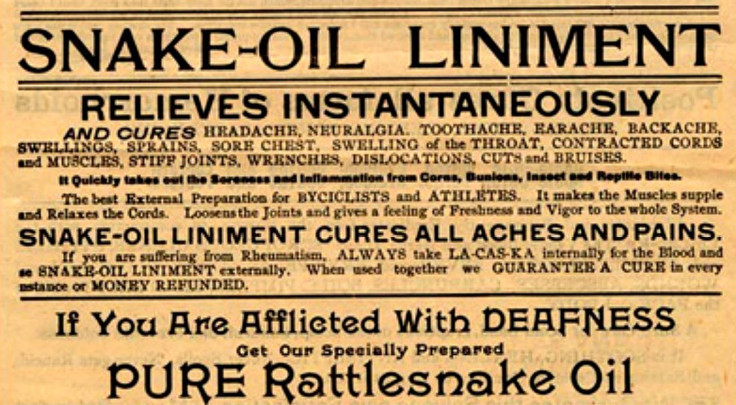Unethical Ads Launched Antidepressants: Drug Industry Failed To Self-Regulate, Study Finds

Can the pharmaceutical industry regulate its own ethics? Asking the industry to regulate its own advertisements may seem like asking the proverbial fox to guard the chicken coop.
Nonetheless, the Swedish pharmaceutical industry has been considered for years one of the best examples of an effectively self-regulating drug industry, reports Medical Xpress.
However, the Swedish system actually suffered critical flaws that permitted about one-third of its drugs to be unethically marketed according to the industry's own guidelines, a new study finds.
In the 1990s, Swedish drug manufacturers began making new claims about antidepressants entering the market, including claims of milder side effects. Following an intensive marketing push, industry antidepressant sales climbed from €18 million to €100 million in just a few years, reports the PLOS ONE study.
During that period, Sweden was looked to as the gold standard for self-regulating pharmaceutical industries, reports Science 2.0.
An information examiner appointed by the industry was tasked with ensuring that drug manufacturers adhered to the industry's ethical guidelines that were designed to prevent misleading advertising.
The ethical system also included a complaint registry and fines for companies in violation of regulations.
"The system of self-regulation was established in 1969 in Sweden, but this is the first academic study of how it really works," says Shai Mulinari, one of the authors of the new paper "Misleading Advertising for Antidepressants in Sweden: A Failure of Pharmaceutical Industry Self-Regulation."
Researchers combed through advertisements published between 1994 and 2003 in The Swedish Medical Journal, finding that 34% of the advertisements had been judged misleading by the industry's self-regulation system.
"The figure should really have been even higher because we discovered that a large amount of misleading advertising had passed through the review process unnoticed. For example, many advertisements that were not picked up contained exaggerated claims about the effects of the drugs," said Mulinari.
The authors also scrutinized the deterrents set in place by the Swedish system.
"The consequences of being convicted were marginal," said Mulinari. "In total, only 0.009 percent of sales revenue went to fines for unethical marketing."
Those fines added an estimated 11 percent cost to each purchased advertisement, or as little as 0.009 percent of total antidepressant sales of around €1.2 billion. Altogether, industry paid roughly €108,000 in fines for violative advertising.
On average, 15 weeks elapsed between printing and censure of a wrongful claim. In one-quarter of cases, 47 weeks or more elapsed.
The paper concludes that lax oversight, combined with time lags and low fines for violations, may explain the Swedish self-regulatory system's failure to pressure drug manufacturers into providing reliable antidepressants.



























